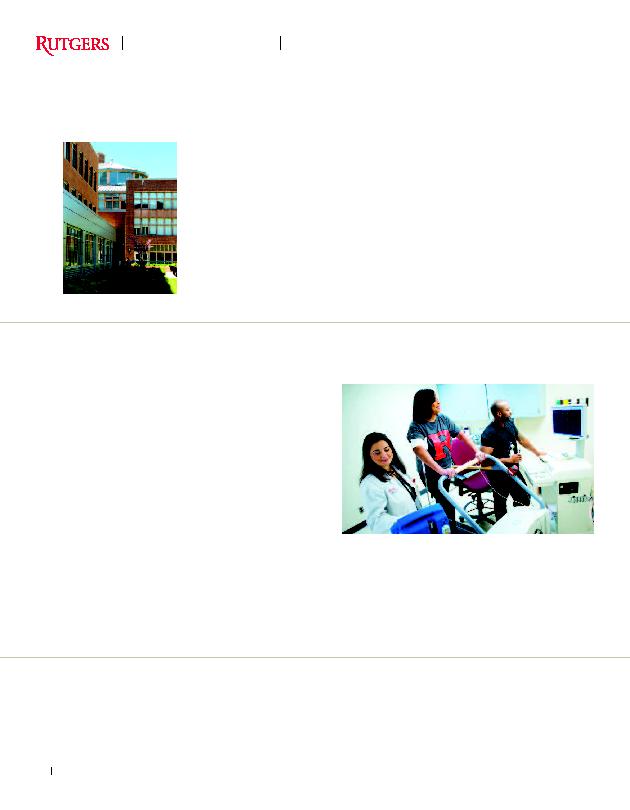
a multitude of interdisciplinary
where faculty work in seamless
collaboration across disciplines.
Biotechnology and Medicine
(CABM)
teaching, is dedicated to making
fundamental discoveries in bio-
technologies, and translating them
to improve human health. CABM
fulfills its vision with a distinctive
melding of eminent research, life
sciences education and robust
scientific relationships with the
private sector. CABM scientists
perform cutting-edge research in
the areas of infectious disease,
cancer, and neurodevelopmen-
tal/neurodegenerative disorders
influenza, leukemia/lymphoma,
autism, and metabolic diseases,
facilitated by collaboration among
investigators with expertise in
different disciplines. CABM is
known for ground-breaking
scientific innovation and widely
respected for its collaborative
mind-set and significant
successes in research and training
at the frontiers of biomedicine.
integrative strategies to prevent,
treat, and cure heart disease, by
translating science and technology
into new therapies and by training
future leaders in cardiovascular
medicine. CVI is uniquely posi-
tioned to achieve this mission be-
cause of its outstanding clinical
services, research, education and
community outreach programs,
its partnership with
ceutical and medical device
companies located in New Jersey.
The faculty at CVI has participated
tion of more than 100 cardio-
vascular agents and devices, and
manages
System
on patients in New Jersey who
have had a heart attack or stroke.
Institute faculty members are
involved in all levels of pre-
doctoral and post-doctoral educa-
tion within the medical school.
Third- and fourth-year medical
students are offered numerous
cardiovascular-related clinical
clerkships in advanced topics in
the diagnosis, treatment, and
prevention of cardiovascular
Fellowships
and research.
does not discriminate on the basis of race,
color, national origin, sex, sexual orientation,
gender identity or expression, disability,
age, or any other category covered by law
in its admission, programs, activities, or
employment matters.
to handle inquiries regarding the nondis-
crimination policies: Jackie Moran
Title IX Coordinator for Students and
ADA/Section 504 Compliance Officer,
Office of Student Affairs (848-932-8576,
jackie.moran@rutgers.edu); and
Office of Employment Equity, University
Human Resources (848-932-3980,
lisa.grosskreutz@rutgers.edu).
nondiscrimination, you may contact
the U.S. Department of Education,
Office for Civil Rights, at 646-428-3900
or OCR.NewYork@ed.gov.